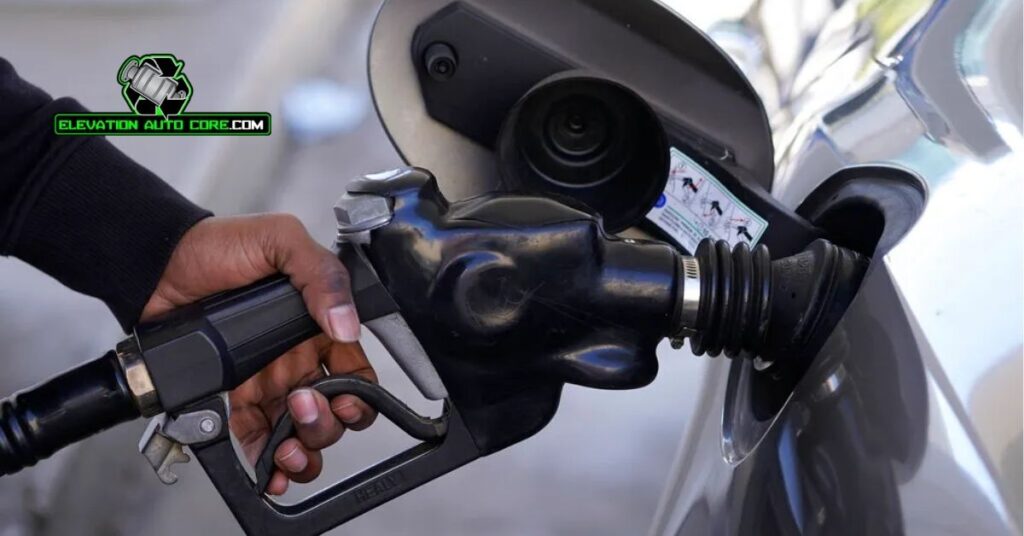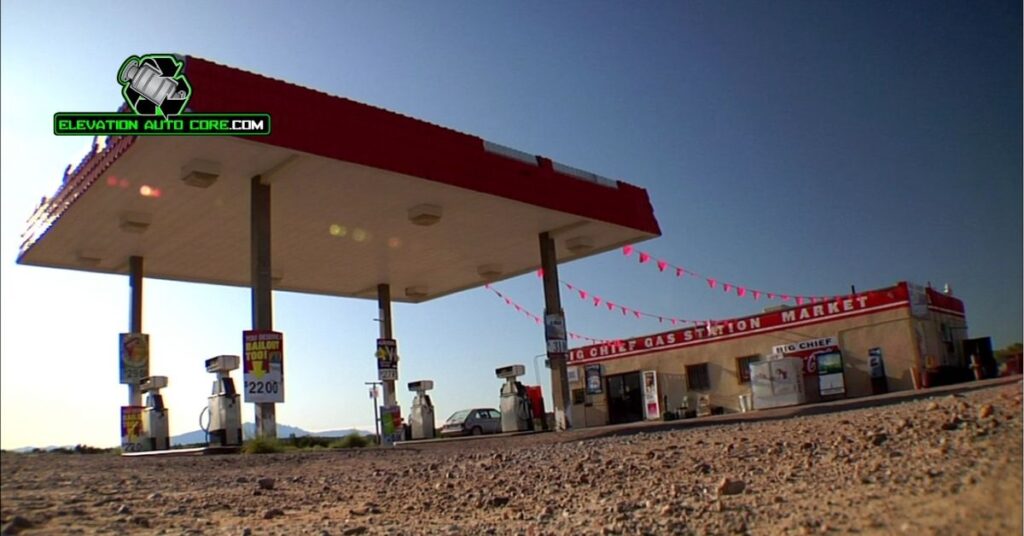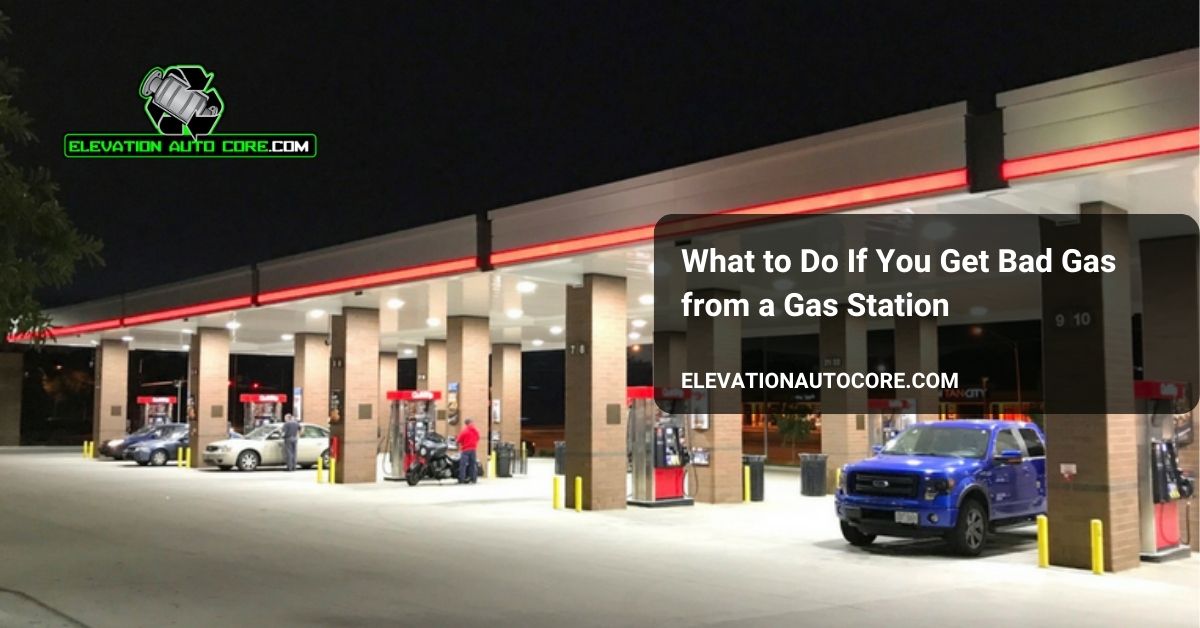Ever wondered what to do if you get bad gas from a gas station? Contaminated fuel can wreak havoc on your car, leaving you with costly repairs and frustration. Knowing the right steps to take can save your vehicle and your wallet—so keep reading to handle this situation like a pro.
Signs You May Have Gotten Bad Gas

Bad gas can disrupt your vehicle’s performance and cause noticeable problems. Recognizing these signs early helps prevent further damage.
Symptoms While Driving
Engines may misfire or stutter when contaminated fuel impacts combustion. Reduced acceleration can signal incomplete fuel burning. Strange noises like knocking or pinging often indicate poor fuel quality. Warning lights, especially the “check engine” indicator, might activate when sensors detect irregularities. Difficulty starting the engine or stalling during operation often suggests fuel contamination.
Impact On Your Vehicle
Fuel systems can become clogged as sediment or impurities accumulate. Engine efficiency typically decreases, affecting fuel economy. Ignition components, such as spark plugs, may wear out sooner due to improper combustion. Fuel injectors might suffer damage, impacting their ability to deliver fuel correctly. Prolonged use of bad gas can lead to costly repairs for critical systems.
Immediate Steps To Take

Bad gas can damage your vehicle’s engine if not addressed quickly. Follow these steps to minimize potential issues and protect your investment.
Stop Driving Immediately
Pull over as soon as you notice signs of contaminated fuel. Continued driving increases the damage to your engine components, like the fuel injectors or spark plugs. Turn off the engine in a safe location to prevent further complications.
Document The Incident
Take note of the gas station’s name, location, and the time of your visit. Record any visible signs at the pump, such as water in the fuel or unusual pump function. Photograph receipts, the gas pump, and any warning lights on your dashboard for future reference.
Save Receipts And Evidence
Keep the receipt showing your fuel purchase. This serves as proof if you report the incident to the gas station or file an insurance claim. Include details like the date, time, and amount spent. Collect a sample of the fuel, if possible, to confirm contamination during further investigations.
Addressing Damage To Your Vehicle
Contaminated fuel can cause important issues, so taking the right steps is essential for minimizing further damage. Focus on assessing harm, seeking expert assistance, and understanding potential expenses and coverage.
Assessing The Extent Of The Damage
Check for symptoms like stalling, rough idling, or reduced performance. These indicate possible internal issues caused by poor-quality gas. Inspect visible components like the fuel filter and tank if you’re qualified, but avoid taking risks if unsure. Use records, like mileage changes before and after refueling, to identify any noticeable drops in efficiency.
Look for dashboard warnings or error codes. A lit check engine light often signals problems in the fuel system. If you notice important changes, assume the contamination has already affected key parts.
Seeking Professional Help
Contact a trusted mechanic specializing in engine and fuel system repairs. Provide them with details like when and where you fueled your car and describe the symptoms observed. Professional diagnostic tools can confirm contamination and determine the level of damage.
Provide a fuel sample if available. This helps identify the contaminants and guides repair recommendations. Avoid driving further to prevent worsening the condition.
Repair Costs And Insurance Coverage
The cost to repair fuel-related issues varies depending on the severity of damage. Fuel system cleaning services and component replacements range from $300 to $1,500 or more. Major engine repairs due to extensive damage can exceed these amounts.
Check your insurance policy to see if it covers fuel contamination. Comprehensive or mechanical breakdown coverage may apply, depending on your provider. Use evidence like receipts and mechanic reports to support your claim. Some gas stations may also reimburse costs if liability is proven.
Reporting The Gas Station

Notifying the proper authorities ensures accountability and may help you recover losses caused by bad fuel. Providing accurate details and following the correct processes strengthens your claim against the gas station.
How To File A Report
Begin by documenting the incident thoroughly, including the gas station’s name, location, and date and time of the purchase. Save your receipt and secure evidence like a fuel sample or photographs of the contaminated fuel if possible. Share this information when reporting to the gas station management or customer service. Request a written acknowledgment of your complaint for future reference.
Explain the symptoms your vehicle exhibited promptly after refueling. Mention any repair costs incurred if a mechanic has already assessed the damage. Clear and detailed communication increases the likelihood of resolution.
Agencies To Contact
Reach out to state or local consumer protection agencies in your region to report the issue formally. Many states have dedicated offices handling consumer complaints about fuel quality, such as weights and measures divisions. Their investigations can verify contamination claims and enforce penalties if violations are confirmed.
File a complaint with the Federal Trade Commission, as this adds your experience to nationwide monitoring of unfair business practices. Contacting the Better Business Bureau might help as well, giving you another avenue to resolve disputes with the gas station. These organizations often mediate cases and push businesses to address valid complaints.
Legal Actions You Can Consider
Explore legal options if the damages aren’t addressed by the gas station or through mediation. Contacting a lawyer ensures you evaluate the potential for a negligence lawsuit based on your evidence. Emphasize receipts, repair bills, and third-party analyses as core evidence to substantiate any claims.
Small claims court may offer a cost-effective choice for pursuing reimbursement, especially for repair expenses falling within the court’s financial limits. Confirm eligibility criteria and prepare formal documentation in advance. Seek advice from legal professionals to ensure the process aligns with your state’s requirements.
Preventing Bad Gas Incidents In The Future

Safeguard your vehicle by adopting proactive steps to avoid bad gas incidents. Focus on choosing reliable fuel providers and staying attentive to your car’s behavior.
Choosing Trustworthy Gas Stations
Select gas stations with a good reputation for cleanliness and quality. Look for brands known for their commitment to regular maintenance and compliance with fuel regulations. Avoid stations that appear neglected or have outdated pumps, as they might lack proper tank inspection and upkeep. Prioritize high-traffic locations where fuel turnover is frequent, reducing the chance of stale or contaminated gas.
Monitoring Your Vehicle’s Performance
Identify irregularities in fuel performance early focusing to how your vehicle operates immediately after refueling. Keep an eye out for unusual noises, reduced acceleration, or difficulty starting, as these may signal contamination. Track patterns and check if certain gas stations consistently lead to performance issues. Regular maintenance, including checking fuel filters and system components, can further help prevent the impact of bad fuel.
Conclusion
Dealing with bad gas can be frustrating, but taking prompt action can save you from costly repairs and further complications. By staying vigilant, documenting incidents, and seeking professional help when needed, you can address the issue effectively.
Remember to report the problem to hold gas stations accountable and consider preventative measures to avoid future incidents. Protecting your vehicle starts with making informed choices and staying proactive about its care.

